Who leads the country? The President? Sure, in theory. But who actually makes all the decisions? It might surprise you to know that presidents and the like and mainly just figureheads – charismatic people-pleasers who get told exactly what to do and say by advisors lurking in the background. And how do these figureheads get there? Well, that’s often the work of those same shadowy figures. Welcome to the world of the “Kingmaker” – a political player who manipulates others into positions of power so that they can rule the country by stealth. And it’s not a new phenomenon either – some of the most famous Kingmakers were around thousands of years ago. Find out more in our Top 10 Kingmakers.
10. James Farley
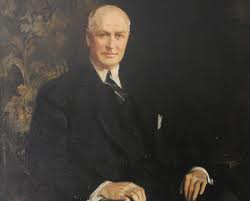
When you think of great Presidents through the ages, Franklin D.Roosevelt’s name often crops up, as despite his womanising and drinking, he was a very popular leader. But less well known is his campaign manager, James Farley. An Irish Catholic with a keen business brain, he orchestrated FDR’s election as New York Governor in 1928, along with his re-election in 1930. When Roosevelt was looking for a presidential nomination a few years later, it was Farley who got him media support through the publisher William Randolph Hearst, as well as the backing of both Catholics and unions. He later fell out with Roosevelt over his own presidential aspirations, but not before returning him for a second term as President in 1936.
9. Chanakya
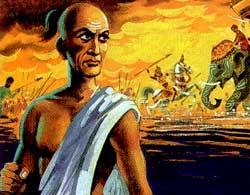
One of the earliest known Kingmakers, Chanakya is thought to have lived around 300 BC in what is now India. He was a scholar of politics and economics, who oversaw the formation of the Maurya Empire and its young emperor Chandragupta. As well as establishing Chandragupta on the throne, he also undertook a secret project to make the emperor immune to poisoning by adding small amounts of poison to his food every day. This plan backfired when Chandragupta’s queen accidentally ate some of his food and collapsed while heavily pregnant. In order to save the baby, Chanakya cut the queen open and delivered the baby, who later became Emperor Bindusara. Of course, this all happened so long ago that it may be entirely fictitious but it’s a good story!
8. Samuel
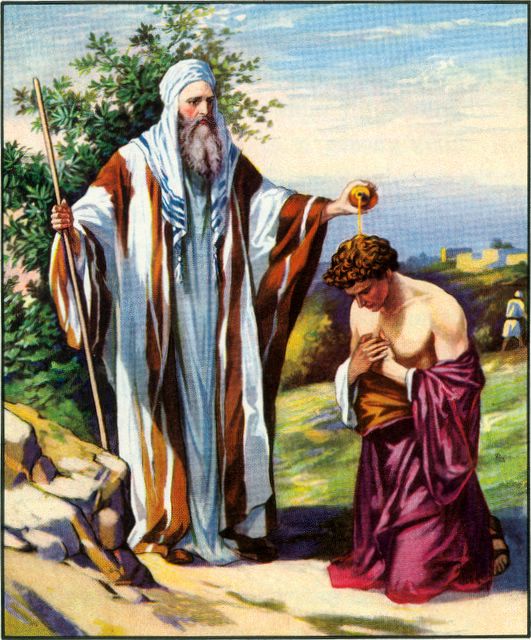
A Kingmaker in the most literal sense, Samuel was a prophet and leader of Israel who oversaw the transition from judges to kings, with mixed results. Bowing to pressure from the Israelites, he reluctantly appointed King Saul first of all, but he soon disobeyed God and fell from His favor. So Samuel appointed another king – this time the legendary King David famous for, among other things, defeating the giant Goliath. Again, David fell down quite badly but still managed to stay king until he died. The kings who followed had a somewhat patchy record, as the book of Chronicles oscillates between good kings and bad kings and ultimately the Israelites are captured and taken to Babylon, bringing an end to the era of the kings. It’s possible that prophetic Samuel had an idea of how it would all go, hence his reluctance to appoint a king at all!
7. Sonia Gandhi

One of the most notable Kingmakers of the modern age, Sonia Gandhi is the Italian-born widow of the former Indian Prime Minister Rajiv Gandhi who was assassinated in 1991. After her husband’s death, she was asked to take over but refused, preferring to stay in the background. She finally got actively involved in politics in 1997, restoring the fortunes of her husband’s Congress Party as their leader. In 2004 an election victory meant that she was in line once again to become Prime Minister, but chose to appoint Manmohan Singh to the post, after quibbles about her nationality. She is also the power behind her son Rahul’s fledgling political career which may, one day, see him follow his father into the prime position. It’s fair to say that without Sonia Gandhi the Indian political landscape would look very different.
6. Ricimer
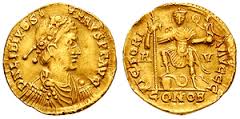
Sonia Gandhi has experienced backlash during her career because she was born in Italy, so it’s likely that the Roman General Ricimer, who was born as a Germanic tribesman, would sympathise with her. Because of his background, Ricimer was never able to assume the throne for himself and therefore had to manage the empire through a series of puppets.
He plotted against Emperor Avitus, with his friend Majorian, and eventually installed Majorian as emperor instead. But Majorian didn’t do as Ricimer wanted, and showed far too much competence and independence. So, Ricimer convinced the Senate to turn against him after a military defeat and have him executed, with his replacement the unremarkable senator Libius Severus. He too got in Ricimer’s way and so was poisoned and replaced with Ricimer’s new father-in-law Anthemius. Before too long, Anthemius was also being deposed by Ricimer, and the new emperor Olybrius was appointed. But all the effort Ricimer put into political manoeuvring had taken its toll and he died of a haemorrhage just six weeks after deposing Anthemius.
5. David Axelrod
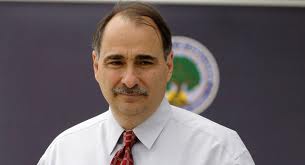
Not to be confused with Miles Axelrod from Cars 2, or indeed the jazz musician, David Axelrod is President Obama’s campaign manager, and is often credited with getting the president into power. This fits with The Economist’s somewhat cynical view that he specialised in “packaging black candidates for white voters.”
He first served alongside Bill Clinton as his political advisor, and was somewhat conflicted in 2008 when he had to choose between promoting Obama or Bill’s wife Hillary. The choice was further complicated by all the work Hillary had done for epilepsy charities (Axelrod’s daughter suffers from a form of epilepsy). But he felt he would be contributing more to the world by supporting America’s first black president, and his able touch saw Obama voted in not once but twice. He has now left politics and works for NBC News as a political advisor.
4. Wiremu Tamihana
Wiremu Tamihana was a native of what is now New Zealand, who converted to Christianity after encounters with British missionaries in the 1830s. Having studied and learned from the British setlers, he then rebelled against them by lobbying for a Māori king, and installing Pōtatau Te Wherowhero as the first one. This gravely worried the British government, who threatened war if the Māori did not submit to Queen Victoria. Tamihana acted as an ambassador for the Māori king movement and eventually won the right for his people to have their own king. The position still exists today, but it is ceremonial and the Māori king has no power over the New Zealand government.
3. Rupert Murdoch

A man who has few friends around the world, but a lot of power, Rupert Murdoch is the Australian media baron who has somehow managed to back every successful British prime minister since Thatcher. In 1992, his newspaper The Sun took the credit for returning Conservative prime minister John Major to power, when he was generally unpopular, seen as weak and expected to lose. Just five years later, he and his papers switched allegiances and supported the rival Labour party, which saw Tony Blair surf into power on a landslide. But where his backing goes, so does the power and it might have been his support of David Cameron that saw the Conservative party back in power in 2010. His media support seems to dictate how every election goes. A powerful man indeed!
2. Niccolo Machiavelli
No list of political manipulators would be complete without Machiavelli – a man so politically astute and devious that his name became an adjective to describe any behavior that involves controlling other people’s lives for your own ends. He lived in Renaissance Italy and was the son of a pope at a time when popes were known more for their bloodthirsty power struggles than for their Christian good deeds. He was also associated with the notorious Borgia family. Machiavelli was a diplomat and a writer and he oversaw the removal of a number of political associates. He was never in the top position but there’s no doubting he held all the power.
1. Earl of Warwick
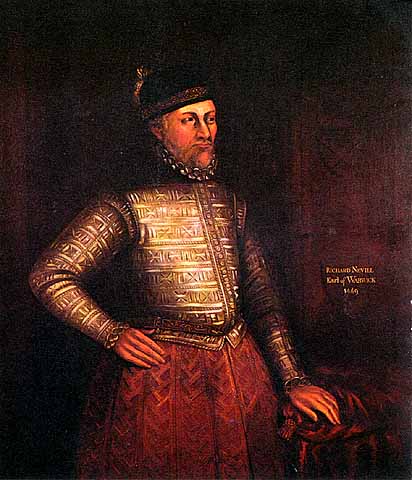
The Earl of Warwick is possibly the first person about whom the term “Kingmaker” was used (although it’s obviously been used retrospectively for much older examples, such as Ricimer). Richard Neville was active during the Wars of the Roses in England, and was responsible for bringing King Edward IV to power. And then betraying him and backing Henry VI instead – Henry being the same king that Warwick had deposed when declaring Edward as king. Henry enjoyed a brief return to the throne, but Edward soon gathered support and proved himself to be strong enough to be king without Neville’s support. The Kingmaker was eventually killed by his former protegee Edward at the Battle of Barnet. His change of heart seems to have been triggered by Edward’s choice of bride and his subsequent favors to his bride’s family. Still, Neville may have regretted leaving Edward’s side in order to support the weak and slightly insane Henry VI, and the subsequent unrest it brought to the kingdom. Certainly not a man who wanted a quiet life!
